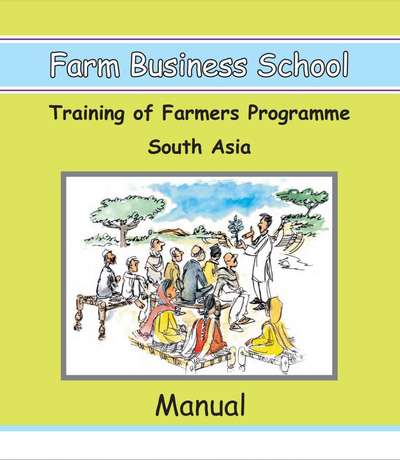
Dramatic changes are taking place in farming worldwide as a result of globalisation, liberalisation, and rapid urbanisation. Farmers are intensifying existing patterns of production and diversifying their farm enterprises in an attempt to improve their livelihoods. Technical know-how is not enough. In order to be competitive and take advantage of the new opportunities that are arising farmers increasingly have to adapt their farm business to market changes and improve efficiency, profitability and income.
The desire to increase income by taking advantage of market opportunities requires farmers to become better decision makers and better at competing in this new environment. The emphasis on the market and the need of farmers to be competitive, calls for better farm management skills. Marketing and farm management have rapidly gained predominance globally over the last two decades. Farm business management skills and knowledge is recognised as important for farmers to effectively respond to present day farming challenges. Farm management advice helps farmers to make the right choice between crop enterprises according to individual levels of financial, labour and land endowments and at their level of risk adversity.
In response to these changes, the Food and Agriculture Organization of the United Nations (FAO) has developed the concept of the Farm Business School (FBS) to build farmers’ capacity in entrepreneurial and management skills. The Farm Business School enables farmers to learn and improve their knowledge, change their attitudes and enhance their skills toward improved farm commercialisation. The approach followed in the FBS is practical and based on ‘learning by doing’. The learning process is designed to enable farmers to learn continuously and to improve their knowledge, change their attitudes and enhance their skills to develop their farming practices to make their farms more market-orientated and profitable. The concept of the FBS was inspired largely by the experience of Farmer Field Schools (FFS).
The Farm Business School consists of a package of training materials intended to inform policy makers, train FBS facilitators and train farmers. The Training of Facilitators Programme is classroom-based and of a short 15 day duration. The Training of Farmers Programme consists of a series of meetings that take place at farm level and run over an entire season. Learning about business occurs in the farmers’ own local environment where farmers can work in small groups at their own pace.
The training programme in this manual is intended to train farmers in farm business management. It has been designed to be conducted by extension workers or lead farmers with good communication skills and some experience in training. It is expected that graduates of this training programme will, in turn, set up and run Farm Business Schools together with other farmers.
Publication Details
- Published: 2011
- Publisher: FOOD AND AGRICULTURE ORGANIZATION OF THE UNITED NATIONS
- ISBN-13: 978-92-5-106817-5